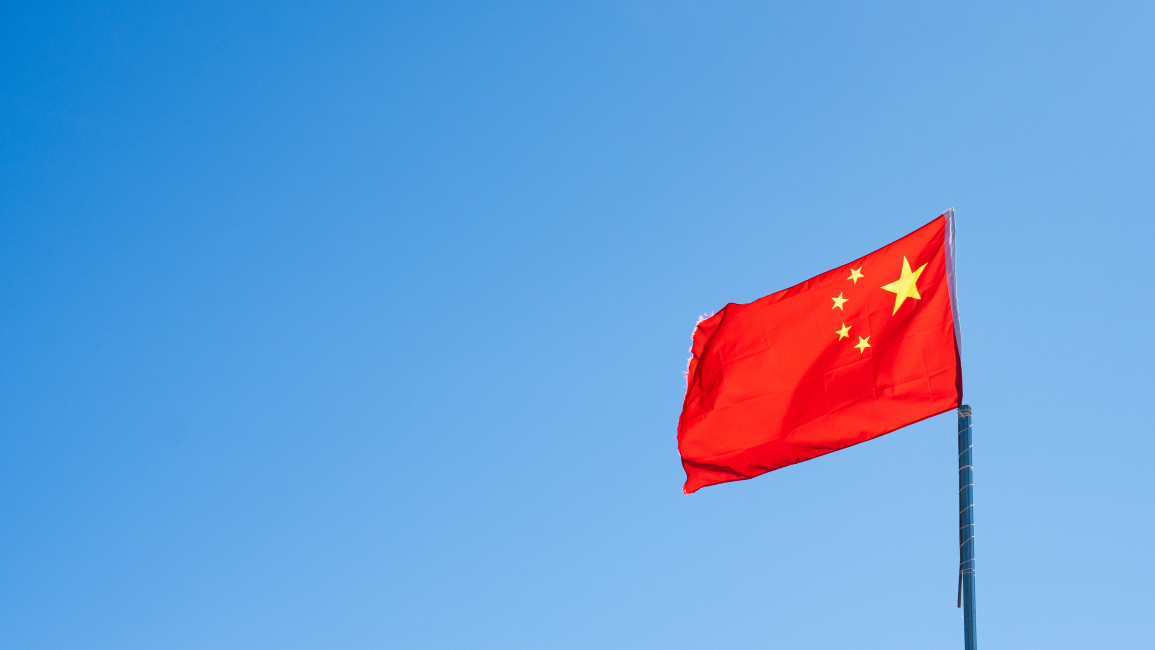
Why China is edging closer to recognising the Taliban

More than two years after the Taliban’s return to power in Afghanistan, China has become the first major country to take decisive steps regarding the new Afghan government’s legal status.
Having received an envoy from Kabul, China’s President Xi Jinping officially accepted ambassador credentials from the Afghan representative.
Meeting the Chinese President automatically bestowed some partial official recognition. As per the Afghan foreign ministry, Maulvi Asadullah, also known as Bilal Karimi, has now become the ambassador extraordinary and plenipotentiary of Afghanistan to China.
"More than two years after the Taliban's return to power in Afghanistan, China has become the first major country to take decisive steps regarding the new Afghan government's legal status"
Explaining that Beijing has always maintained diplomatic ties with Kabul, the Chinese foreign ministry spokesman Wang Wenbin stopped short of stating whether formal recognition had been given but declared it a “normal diplomatic arrangement”.
Ever since the Taliban takeover of Kabul, China, Pakistan, Russia, and a few more regional states maintained their embassies there. Meanwhile, the Taliban gradually established control over various Afghan diplomatic missions abroad, especially in neighbouring countries.
As a result, the Afghan Taliban maintains embassies in 14 countries, such as Pakistan, Uzbekistan, and Tajikistan though their government remains unrecognised by these states.
The Taliban's quest for recognition
Ever since the Taliban administration took over Kabul, its top hierarchy has been openly yearning for official status. During their first stint in power [1996-2001] the group had been afforded recognition by Saudi Arabia, Pakistan, and UAE.
At that time, the Taliban were an untested entity, but this time their ruthless reputation has preceded them, and no country has come forward to legally recognise the regime due to their human rights violations.
In fact, the US and the EU have imposed economic and political sanctions on the regime.
Having had closer ties with neighbouring Pakistan, the Taliban government expected it to take the lead, but Islamabad preferred to bide its time and wait for a “regional decision”.
In the meantime, most of the Muslim-majority countries rejected the Taliban’s stance on women’s rights.
|
|
Making things worse, Pakistan-Afghan ties have been fraying recently, with militant attacks taking place inside Pakistan from across the border with Afghanistan followed by the expulsion of unregistered Afghan refugees by Islamabad to contain the security crisis.
Ostensibly, one of the reasons the Taliban lost interest in controlling militants was that Pakistan held off on recognition.
Downgrading engagement with the Taliban, Pakistan then announced that it “would not advocate the Afghan Taliban’s case at the international level” until it reins in terrorist elements. Having supported Kabul’s case in the past, Islamabad’s stance was a setback for the Taliban.
With foreign recognition, there is a possibility that sanctions on the Taliban government would be lifted, and it would be able to access central bank assets worth around $7 billion.
It is amid this scenario that Beijing has conveyed to other states that the Afghan Taliban’s control is undeniable and the country cannot be isolated by the international community.
"By leading the way as one of Afghanistan's six immediate neighbours and a major power, China has signalled to other countries that it is moving in an opposite direction from the West"
Beijing's stakes in Afghanistan
By leading the way as one of Afghanistan’s six immediate neighbours and a major power, China has signalled to other countries that it is moving in an opposite direction from the West by recognising the Afghan Taliban government.
With this bold move, Beijing can increase its soft power in Afghanistan.
Posting on X, Zabihullah Mujahid, the Taliban’s chief spokesman, said, “China has understood what the rest of the world has not”.
Calling on Russia, Iran, and other countries to follow suit, he added, “We are not in a unipolar world”. Only time will tell, however, how substantial Beijing’s support proves to be.
“China is working on its own trajectory with Af-Taliban and will keep giving them small ‘gifts’ to keep their faith in China alive till some kind of regional consensus emerges. Till then, for China, they will remain ‘interim govt’ with no new projects announced,” Eram Ashraf, an international relations expert, wrote on X.
However, Naveed Ali Sheikh, a research scholar and military relations analyst based in Islamabad, told The New Arab that he believes China is making “honest efforts” to normalise the Afghan-Taliban relationship.
“The Chinese authorities have started training programs and courses for the Afghan side, but the Afghan authorities have multiple agreements with other countries e.g. they are also keeping a door open for India, in fact, Indian diplomats quickly returned to Afghanistan after a short midnight evacuation on 18th August, 2021,” he told TNA.
By engaging the Taliban even closer, Beijing has also removed the possibility of Afghan territory being used against China. All of Afghanistan’s neighbours are concerned about the different terrorist groups inside various parts of Afghanistan, especially near its borders.
|
|
Preventing potential security threats from an unstable Afghanistan is Beijing’s priority as even Russia and the US have raised concerns regarding foreign terrorist groups based in Afghanistan.
Interestingly, Beijing reached out to Kabul at a time when its all-weather ally Islamabad was navigating choppy waters with its north-western neighbour. It is possible that Beijing did not want to leave this space open for any other countries to exploit, choosing to fill Islamabad’s vacuum.
By actively engaging with the Taliban and growing its influence over the regime, China could start bilateral counter-terrorism interaction and cooperation between China and Afghanistan whenever required.
Concerned about the East Turkestan Islamic Movement (ETIM), Beijing had sought help even from the previous Afghan government. Mainly, China wants to prevent any terrorist spillover from Afghanistan to its Xinjiang region.
Beijing is also interested in the mining, manufacturing, agricultural, and services sectors, with Afghanistan possessing valuable mineral resources like copper, lithium, and rare earth elements essential for Chinese industries.
"With foreign recognition, there is a possibility that sanctions on the Taliban government would be lifted, and it would be able to access central bank assets worth around $7 billion"
Strategically, Afghanistan can also connect China to West and Central Asia. In fact, the current Afghan government has been planning to provide road access along the Wakhan Corridor to China, a route which may be shorter than the Karakoram Highway from the Pakistani side
For some years, Beijing has been trying to extend the Belt and Road Initiative (BRI)’s flagship China-Pakistan Economic Corridor (CPEC) to Afghanistan to increase trade links.
“Due to delays in CPEC projects and security issues from Afghan soil, the Chinese were quick to reach out to the Taliban after the fall of Ashraf Ghani’s government,” research scholar and military relations analyst Naveed Ali Sheikh told TNA.
“They wanted to explore options of using the Indian-made Route 606 or NH49, a 218 km highway linking Delaram, Afghanistan to Zarang, linking onwards to Iran’s Chabahar port. The Chinese were eying a land cargo route as well and the first China-bound Afghan export happened in October 2021, surprisingly 40 tons of pine nuts, and it had to be air-lifted.”
But though it was serious about investing in Afghanistan, China adopted a limited approach to prevent any losses. Last year, a Chinese energy company invested $49 million in Afghanistan’s oil production and helped boost the daily crude oil output to more than 1,100 metric tons, but only one-third of the promised funding materialised.
“Although the attraction of [Afghanistan’s] mining and energy resources is strong, there is considerable Chinese wariness about the internal security situation, the reliability of Taliban assurances regarding foreign investments, and Afghanistan’s poor infrastructure,” Andrew Scobell, distinguished fellow for China at the United States Institute of Peace, told VOA.
Highlighting more issues in the China-Taliban equation, Sheikh observed that China’s Xinjiang Central Asia Petroleum and Gas Co (CAPIEC) was interested in the American-abandoned Amu Darya Oil & Gas Fields in western Afghanistan, signing a 25-year exploration contract with the Taliban.
“This was the first time the Chinese realised that the Taliban were not naïve as they exaggerated costs and gave inaccurate estimates. Noticing discrepancies, Beijing delayed grants for several months. Then in order to pressurise Beijing, there were a few security incidents in Nawdari Qala concerning Chinese nationals.”
|
|
International engagement
Authorising the UN Secretary-General to appoint a special envoy for Afghanistan, the UN Security Council wishes to facilitate coordinated international engagement with the Taliban administration.
However, this move has not gone down very well with Kabul and it has objected to the appointment, saying that the UN should stop treating Afghanistan as an “anomaly within the international community”.
Instead, the Taliban wants regular diplomatic relations with other countries and China is now on positive terms with the Afghan rulers.
In the days ahead, Chinese involvement in Afghanistan’s political landscape, foreign policy, and economy is likely to continue gradually increasing.
Sabena Siddiqui is a foreign affairs journalist, lawyer and geopolitical analyst specialising in modern China, the Belt and Road Initiative, Middle East, and South Asia.
Follow her on Twitter: @sabena_siddiqi




![President Pezeshkian has denounced Israel's attacks on Lebanon [Getty]](/sites/default/files/styles/image_684x385/public/2173482924.jpeg?h=a5f2f23a&itok=q3evVtko)



 Follow the Middle East's top stories in English at The New Arab on Google News
Follow the Middle East's top stories in English at The New Arab on Google News


